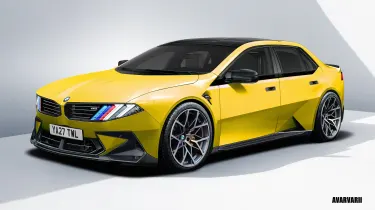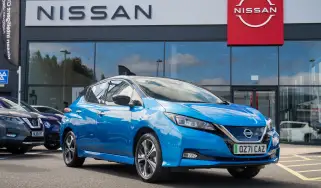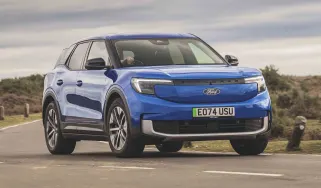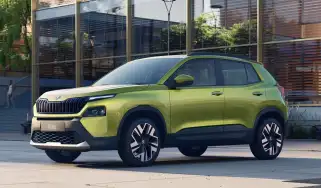New BMW M3 will keep petrol power, but there'll be an EV, too

BMW is hedging its bets and developing two versions of the new M3 side-by-side, rather than picking one powertrain option over the other. Auto Express has learned that the upcoming all-electric M3 will be complemented by a mild-hybrid petrol-engined alternative. The reveal of both cars is scheduled for 2027, before they go on sale in 2028.
A senior official within the project told us that the two versions should look pretty similar to each other. Rather than two different editions of the super-saloon, we’ve been told to expect the same car with different powertrains. Both will be made available in the UK at the same time, with BMW able to increase or decrease production of one powertrain or the other depending on customer demand.
BMW’s development boss Frank Weber previously revealed that the existing 3.0-litre turbocharged straight-six engine has been developed to meet Euro 7 emissions regulations. We have since learned that those emissions targets will be met with mild-hybrid tech, but otherwise, there’s no confirmation of what engine the next petrol-powered M3 will use. However, BMW won’t go down the same downsizing route as Mercedes-AMG has done with its four-cylinder plug-in hybrid C63.
A six or eight-cylinder M3 could be possible, but we know that it’ll have a new cylinder firing order and a revised cooling set-up – the latter of which will contribute to a significant reduction in weight, which could come down to as little as 1,500kg. Similar kerb weight figures on an M3 haven’t been seen since the early 2000s, on the lightweight M3 CSL coupé with carbon panels.
With no substantial electric assistance, we expect the petrol-powered M3 to be only slightly more potent than the current M3 Competition, which develops 523bhp and 650Nm of torque.
The pure-electric M3, which could be called iM3, will have similar dynamic capabilities to the petrol model, according to our source, despite the EV weighing between 400 and 500kg more. To offset the extra weight, the iM3 will get more power. We’ve previously seen a quad-motor version of BMW’s similarly sized i4 M50 EV testing and Weber told Auto Express the system could produce up to 1,341bhp, although such an output would probably be reserved for cars further up the M range, such as the X5 M and XM.
The iM3 will likely get a detuned version of the system, but power distribution between the four motors will be highly adjustable, which should help the iM3 retain the traditional driving experience of the M3.
BMW’s M division boss Frank van Meel also told Auto Express that the company is looking into simulated gearchange technology like that offered on the Hyundai Ioniq 5 N. “If you have just one gear and you have no feedback at all, you don’t know how fast you are going and you cannot look down at the speed,” he said. “You should always know how fast you are going, and that’s missing if you have no acoustic feedback and no haptic feedback. We are looking into different ways of giving you that.”
We expect the new all-electric M3’s design will be inspired by the Neue Klasse 3 Series sedan, garnished with some usual M division touches such as wider wheelarches, aggressive bumpers and the diffuser seen in our exclusive image predicting the looks.
With less heat build-up, thanks to new engine temperature-management systems, the petrol-engined M3 might not need many more air vents at the front than its pure-electric sibling.



